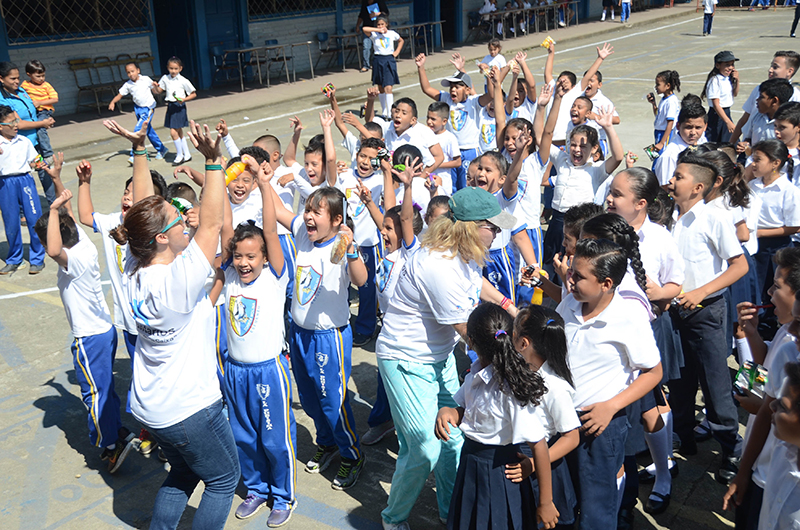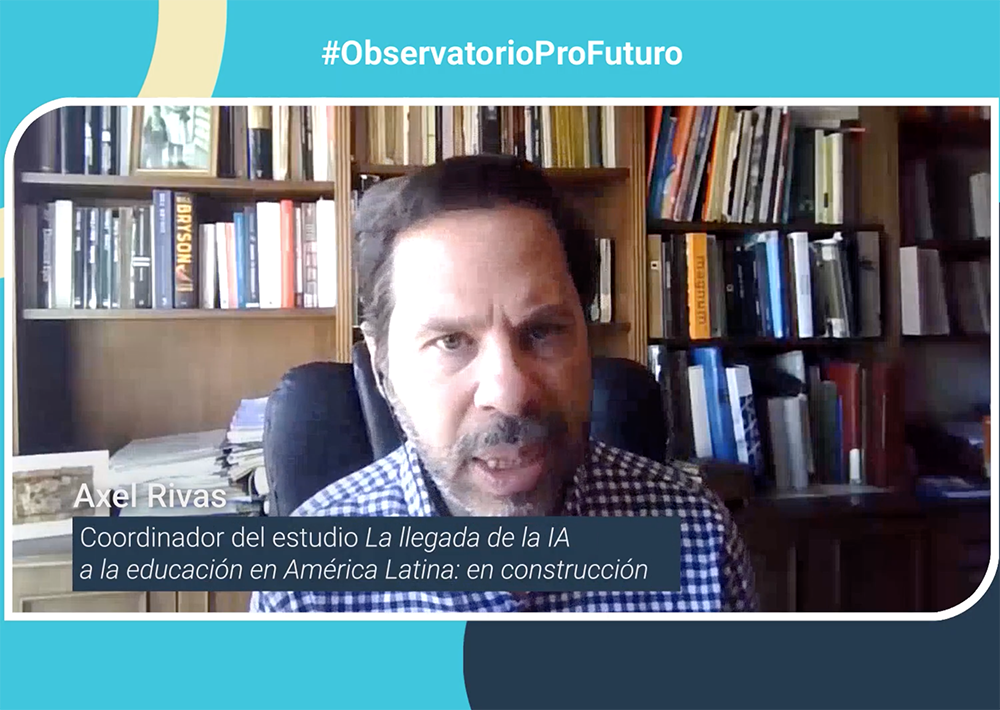Education and technology: keys to integrating them into vulnerable environments
We begin the year by reviewing, in the light of the lines of enquiry of the forthcoming UNESCO GEM Report, we review some lessons learnt with regard to incorporating technology into education in vulnerable environments. Thus, after recounting the main lines of research around which this new edition of the GEM Report was to focus (dedicated to the role of technology in promoting education in the world), in this article we provide the main lessons learned from the experience of ProFuturo. How can technology be used to overcome challenges such as the access, quality and equity gaps? What are the main risks and how can we prevent them? How can technology be appropriately incorporated into education systems in vulnerable environments? If you are curious, here is the full article.
Tell me a story: the girl and science
Did you know that at the age of six, girls begin to consider themselves less intelligent than boys and less able than boys in science subjects? In February, we celebrate the International Day of the Girl Child with a post that aims to provide facts and answers to the general situation of women in science. Is there a future for girls in disciplines related to new technologies? Do you want to find out more? Don’t miss the article.
Personalised learning: the great dream of education
Although it was back in the 18th century that the French philosopher Rousseau theorised about it, today with the development of information technologies, learning personalisation has taken a new evolutionary leap: intelligent tutoring systems, free access to numerous learning platforms, methods that use computers to adapt the complexity of content to the user’s needs. But do you know what personalised learning really means? We tell you about it here.
Curating content for the classroom: what and how
In the 21st century, producing and consuming content is an extremely important exercise of responsibility that we must learn to carry out. Because did you know that nowadays, in just two days, we create as much information as that created over the last 2,000 years? How can we navigate this giant ocean of knowledge? How can we learn to manage it and capitalise on it in the classroom? We’ll explain it to you in this post.
The great challenge of assessing teachers’ digital skill
What does a digitally competent teacher need to know? What skills and competences do they need to develop? How can we help them to do so? The assessment of teachers’ digital skills and how they integrate them into their pedagogical practices is a key issue in developing teachers who are able to offer their students a quality education that meets the challenges of the 21st century. To discuss its importance and the challenges it poses, the ProFuturo Foundation organised, together with the Teacher Training Institute (INTEF)a one-day seminar in which several experts met to discuss these and other issues. In this post we summarise the main conclusions of the seminar.
What if teachers lead the change in Africa?
African teachers hold the future of an entire continent in their hands. However, the teaching profession in Africa faces major problems that prevent it from being the driver of change that the region so desperately needs: lack of training, overcrowded classrooms, insufficient pay, to name but a few. In this article, social entrepreneur Folawe Omikunle, director of Teach for Nigeria, analyses these challenges and offers us some key ideas to overcome them.
Five key questions about learning mathematics
Mathematics has always been a key element in the development of any civilisation: Greek, Roman, Mayan, Egyptian – why should ours be an exception? Without it, we would have no mobile phones, no scientific breakthroughs, no space missions, no Google searches; we cannot deny it. If we want to understand the world around us, we must necessarily turn to the dreaded and, more often than not, hated mathematics. However, we don’t understand it, we’re afraid of it, it’s boring and we don’t learn it. This could be the infinite loop of the Student-Mathematics relationship throughout history. In this post we look at the reasons that perpetuate our poor connection with this subject.
Digital education for all: a global commitment at last
At the Observatory, we know that digital learning is key to injecting education systems with the transformative spirit they need to achieve more inclusive, equitable and quality education for all. Last October, the international community, meeting at the Education Transformation Summit, recognised this and included digital education among countries’ new commitments to transform education to transform education. What does this commitment mean? We’ll explain it in this post.
Ethical, inclusive and sustainable artificial intelligence
Artificial intelligence is no longer a science fiction novel but part of our everyday reality. Its possibilities for transforming our lives are almost endless. However, for this transformation to be “for the better”, it has to take place under certain conditions. In this post, Carlos Martínez Miguel, global director of IoT (internet of things) solutions and services, big data and artificial intelligence at Telefónica Tech, talks to us about what these conditions are.
Educational best practices: what they are and how to talk about them
Learning losses, teacher shortages and inadequate training, lack of investment in education policies… If we listen to the big headlines, it seems that education only gives us bad news. And nothing could be further from the truth. Behind the big numbers and percentages, education is full of wonderful and positive little stories that deserve to be told. In this post we show you what best practices are and how to communicate them so that they can work their magic and change education.
















